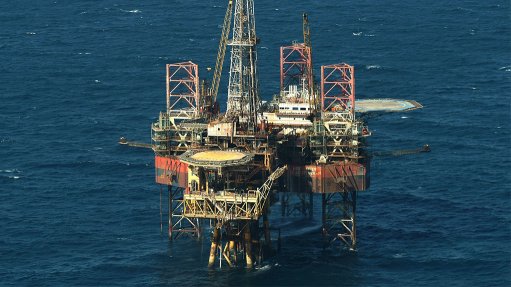
SHALE GAS BIDDING The creation of a specific hydrocarbons legislation for the oil and gas industry in South Africa will foster foreign investment opportunities
Estimates that South Africa has the world’s fifth-largest reserves of shale gas has the potential to attracted international investment into the country, with PwC estimating that as much as $1-billion is set to be spent on shale gas exploration. However, there is some anxiety over the legislative framework governing such activities, which has led to calls for the creation of specific legislation for oil and gas exploration and development.
In its 2013 ‘Oil and Gas’ report, professional services company KPMG highlights that South Africa is the major known holder of shale gas in sub-Saharan Africa, with an assessment report estimating that South Africa hosts 390-trillion cubic feet (10.9-trillion cubic metres).
Webber Wentzel director Greg Nott says, while much has been written on how the Mineral and Petroleum Resources Development Amendment (MPRDA) Amendment Bill 2013 affects the mining industry, little comment and relevant analysis has been made in respect of the oil and gas sector.
Nott mentions that item 4 of Schedule II of the MPRDA invited existing investors who had subleases – subleases were governed under the Mining Act, 1991, which was repealed on promulgation of the MPRDA – to convert to a new type of exploration right, saying it took much longer for oil and gas companies to get comfortable with the new MPRDA regime than the legislators had intended.
He adds that, since the MPRDA was brought into law in 2004, South Africa’s offshore hydrocarbons sector has also fundamentally changed. Nott mentions that State-owned Petroleum Agency South Africa (Pasa) former CEO Mthozami Xiphu, who with his team at Pasa built and promoted South Africa’s oil and gas potential, has moved on to be the executive director of the South African Oil and Gas Alliance, and that in so doing, he is determined to drive forward the transformational effects he knows the hydrocarbons industry could bring to the sector.
“As a result, through Pasa’s efforts, almost all blocks offshore are now either under exploration, limited production or subject to advanced technical evaluation. In the space of only a few years, South Africa’s hydrocarbons potential has grabbed the attention of international exploration and production companies.
“However, the 2013 MPRDA Amendment Bill (as it stands) will effectively dissolve Pasa, depriving the oil and gas industry of a stable and established relationship with its regulator, as regulations under the 2013 MPRDA Amendment Bill will move to a series of regional managers,” Nott indicates.
He notes that like all capital-intensive long-term and high-risk investments, the oil and gas industry undertakes wide-ranging risk analysis, which includes political and legislative stability risks. Though this is the case, it remains the State’s responsibility to ensure that it creates policies that are conducive for international investment.
“With the current offshore oil and gas rights outlined in the 2013 MPRDA Amendment Bill that grant the State 10% during the exploration phase, this might be a risk economically for investors. If the State’s take is too high, the project will not screen and competition for investment capital will be lost to a more attractive opportunity.
“Like other industries, the oil and gas industry craves stability in order to ensure that its forward investment decision modelling of a project, which may run as long as 50 years, is as good as it can be. The 2013 MPRDA Amendment Bill may be seen as radical policy change and as such will advance up the risks matrix and become a bigger factor in forward investment decisions,” says Nott.
With government deploying a new Minister of mineral resources, Nott further urges the department of mineral resources to draft a hydrocarbons act separate from the MPRDA Amendment Bill, which would assist in the development a world-class oil and gas industry in South Africa.